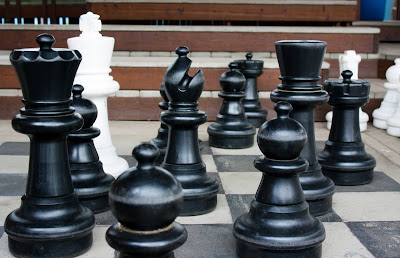Honoring Authority within God’s Big Picture (Part 1):God Paints Our Responsibilities onto the Canvas of Life
We
need explanations. No, we demand explanations. We want equality and justice. We
want life to be fair. Well, maybe not fair as much as going our way. We wish
life would happen the way we think it should…because it’s ours.
It’s
ours!
I
know this isn’t how all of us feel. In fact, I think most of us reading this
post are not this way. But there are many who value themselves and their rights
so dearly, that they step out of line. We may slip sometimes, too, and veer away
from God’s authority system.
I’m rewriting two posts from 2017
about honoring the authorities in our lives:
I know rewrites are a no-no, but these posts just don’t feel effective.
For various reasons, they seem to cause confusion and unsettled emotions. I didn't write what I meant to say (see Melinda Inman’s post called Writing What We Mean). So, I’m
offering three replacement posts that I hope are clearer and more cohesive, and
very applicable to everyday Christian living.
Here are the titles for the replacement
posts:
On to the first post…
God Paints Our Responsibilities
Onto the Canvas of Life
Farther than we can see through the
telescopic expanse, and deeper than we can probe into microscopic life and
matter, are the intricacies of God’s big picture. There is a great big picture
we do not have the capacity to see. As we age, we notice more, but we just
can’t see it all.
God can. It’s His picture.
I often complain about things not
going my way and I sometimes push and shove to make my day better. When I do,
I’ve lost sight of this simple fact:
God painted a bigger picture in
the foreground and background
of my portrait.
God’s big picture includes so much
more than we can ever imagine, and, because we’re in the picture, we have a
responsibility to those near us as well as those very far away. We’re all in
the picture and He painted each of us differently, along with those who stand
in positions of authority.
David humbly honored his superiors. He
was accommodating and compliant. Early on we see his respect for his father,
the prophet Samuel, and God (1 Samuel 16). Maybe respect came naturally for him
because it seems everything David did was as if it were done for God. This should
be our approach as well.
Whatever you do, work at it with all your heart,
as working for the Lord, not for human masters…
It is the Lord Christ you are serving.
Colossians 3:23-24
These verses specifically address subordinates,
and many other portions of Scripture support the same idea [examples in Footnote 1].
As unto the Lord, and in light of
God’s big picture, here are a couple things we can learn from the honor David
reserved for the authorities in his life…
1. The more we recognize God as the painter, the more we honor our authorities.
God painted the authority figures in
our portraits. With great leaders in mind, we readily accept this truth, but
it’s also true of those whom we’d rather see step down. They didn’t sneak into
the picture on their own. We might see them lobby for prominent positions, or
even lie and cheat their ways onto the canvas, but they didn’t get there
without God first appointing them. God painted them as He wished and where He
wanted:
parents
spouses
church leaders
employers
government authorities
Scripture supports each of them as specially positioned by God (references in Footnote 2). We can probably assume all authority figures are assigned by God.
David honored King Saul as God’s choice, and he honored God by waiting for Saul’s tenure to conclude according to God’s plan and timing. He understood that God appoints governments and rulers.
Let everyone be subject to the governing
authorities,
for there is no authority except that which God has established.
The authorities that exist have been established by God.
Consequently, whoever rebels against the authority
is rebelling against what God has instituted…
Romans 13:1-2
I realize it’s hard to accept this truth today. There are many who don’t live up to their roles as authority figures. But don’t forget it was also hard for David and for many others throughout biblical history.
We cannot question the decisions God
makes in His sovereignty.
We don’t have a seat at His decision table,
and we would do well to respect Him for it.
Otherwise, we defy Him.
How often do we push back when a
decision doesn’t go our way, or when a comment doesn’t match our biases? Consider
for a moment:
o Do our desires and points of view differ from God’s?
o Can God call us men and women after
His own heart as he did David (Acts 13:21-23)?
2. The more we revere God’s big
picture, the more we value our everyday tasks.
God painted so much outside of the
frames of our selfies, but maybe we miss it. Maybe we let people and peripheral
activities go unnoticed sometimes. Do we limit our attention to our immediate?
• Will
my family get along today?
• Will
I have a good commute?
• I
hope it won’t be a long day at work/school?
• When
will I get a job/raise?
• Will
he/she finally notice me?
Of course, we should spend time
pursuing our ambitions and passions, but God painted more, including less exciting
things. Call them mundane, monotonous, or menial. We have responsibilities.
Everyday tasks. Maybe they’re activities that help us remain healthy, or stay
organized, or make life better for our families. Many of those activities are
expected of us.
When
it comes to our everyday work,
God wants us to do it out of honor for our authorities,
in acceptance of His sovereign decisions,
and as unto Him.
God chose David to be king, but he had
to wait over 20 years to receive the crown. In the meantime, he honored his
predecessor by fulfilling his everyday duties.
• He
was King Saul’s personal musician, a.k.a., servant.
• He played
soothing music to calm Saul’s tormented heart.
• He was
summoned to live with Saul for reasons that suited Saul.
• He was
Saul’s personal armor bearer, but he didn’t get to bear Saul's armor in the most
significant battle of his armor-bearing career: when they faced the Philistines
and their giant Goliath.
So, David, at times, probably stood
at the crossroads where we tend to ask ourselves, “Why hasn’t anything changed?
Why am I putting up with this? This is not working for me. How can I get out!?”
But David didn’t ask those
questions. As we discussed earlier, he treated his duties as assignments
from God. That’s why…
…when the Israelite army went to battle without him, he
returned to his home to shepherd his father’s flock (1 Samuel 17:12-15)
…when his father asked him to take bread to his brothers on
the battle line, he obliged him wholeheartedly (1 Samuel 17:15-20)
…when Saul decided David had become a threat to his
kingship, David didn’t fight back, but remained on the run, living in the wild,
with limited resources and sometimes none at all (1 Samuel 21)
Sure, David wondered about his
situations at times, but he didn't complain. He maintained his respect
for the journey God set before him. He fulfilled his duties under King
Saul (musician and armor bearer), to his father (shepherd and bread courier),
and to God (faithful follower who succeeded by honoring God’s choices for his
life). He even accepted his position under Saul as a battle regiment captain
and didn’t shy away from certain missions where he’d face scores of enemies
while Saul hoped that he would be killed by the Philistines (1 Samuel 18).
You probably already realize that this
article speaks just as much about honoring our superiors as it does our equals
and our subordinates. David’s honor and respect were not dependent on relation
or interaction.
Our disposition reflects our attitude toward God.
The way we treat others is the way we treat God.
We’ll cover more about honor and God’s big picture in the next 2 posts. For now, in all honesty, how are we
doing? I struggle.
o Do we honor the authorities God placed in our lives?
o Do we respect them enough to follow
through with our responsibilities under them?
o What does our response to authority say about our relationship with God?
If you have questions about honor and
our authorities, or if you want to know more about living for Jesus and what it
means to be a child of God, please email me at authordlv@att.net.
Read more blog posts here.
THE
HOLY BIBLE, NEW INTERNATIONAL VERSION®, NIV® Copyright © 1973, 1978, 1984, 2011
by Biblica, Inc.® Used by permission. All rights reserved worldwide.












